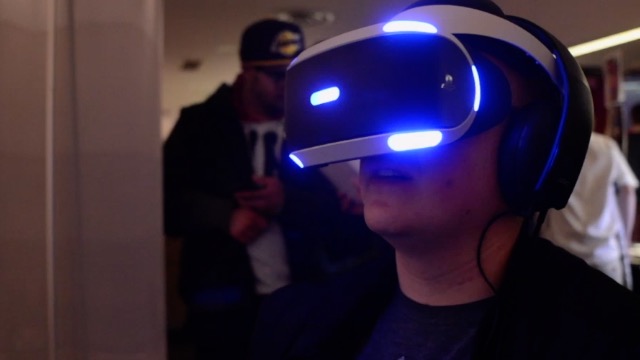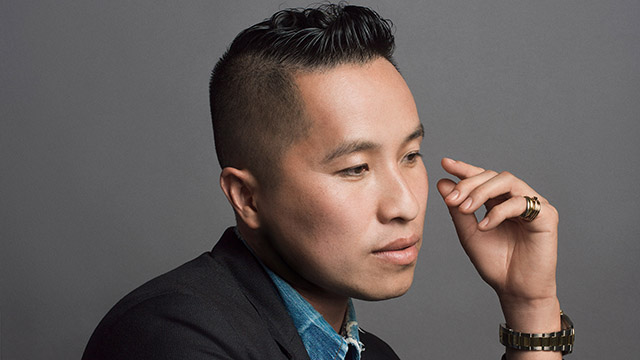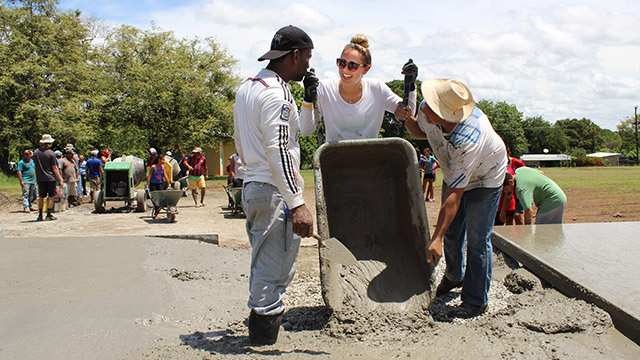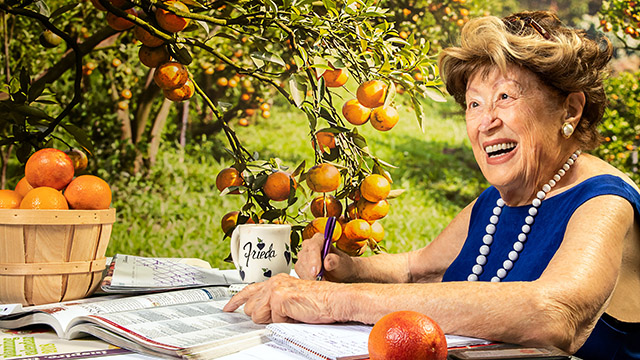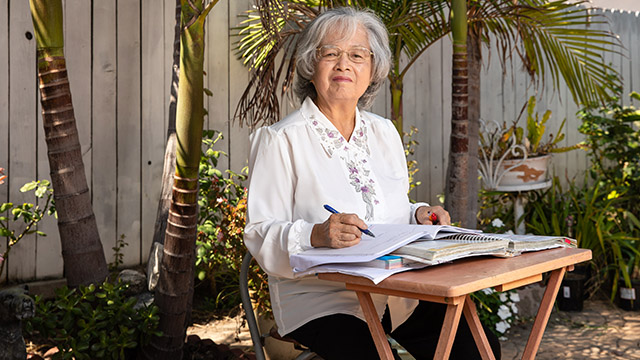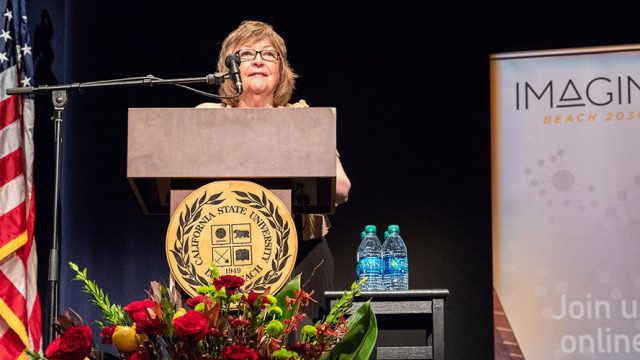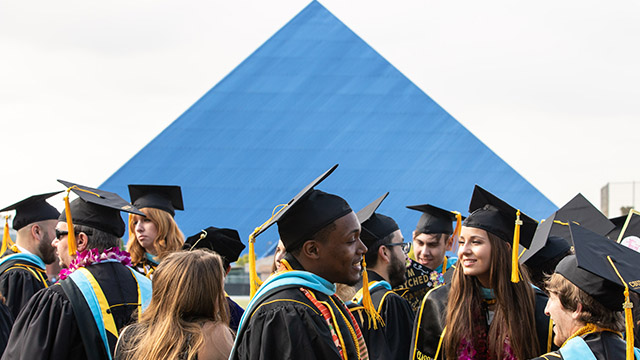Leading with Passion
Meet the Conoleys
Jane Close Conoley | New York City native with a B.A. from the College of New Rochelle, New York, and Ph.D. from the University of Texas at Austin. Having attended Catholic girls’ schools through college, Conoley never had men students in her classes until her Ph.D. program.
Husband | Collie Conoley, Texas native and a professor of counseling, clinical and school psychology at UC Santa Barbara. They met at UT Austin and have been married 38 years.
Children | Brian, a lawyer; Colleen, a neuropsychologist; and Collin, an IT specialist and musician; five grandchildren.
CSULB’s seventh president, Jane Close Conoley, started in July and already is making her mark on the university and the community. Beach Magazine spent a few moments with our new leader.
What intrigued you to apply here?
The composition of the student body places us at the heart of a major social issue, which is providing excellent education to college-age students from low-income families. I saw that 60 percent of our students are eligible for Pell grants and I thought, ‘That’s the place to be,’ because what’s really needed to ensure a democratic, safe and prosperous society is to make sure students who have come through without many advantages have access to a wonderful education.
The California master plan for higher education was looked at with great admiration across the nation, essentially with the transcendent message being, ‘If you work hard and meet these requirements, the state will make sure you’re educated through college, and that will be the investment in our future as a state.’ The unfortunate thing now is that it isn’t funded to be made available to all eligible students in California.
What are some ‘Wow!’ moments in learning about the campus and community?
It’s how clearly the community loves the university and how embracing they have been of both my husband and me.
Meeting a number of faculty and hearing about their work and how they involve students in their research and scholarly activity is very inspiring. I’ve also been specifically wowed by the student talent. They are just so terrific. And our staff are so committed and caring. I keep finding these gems of real excellence.
And it’s the strong relationship between the campus and the community, so that hospitals are better because we prepare great nurses, and schools are better because we prepare great teachers. Businesses benefit from our Colleges of Engineering, Business Administration, Health and Human Services, and Liberal Arts and, in turn, by sharing knowledge with the university. And our arts and athletics programs really engage the community.
What does being a best value university mean?
Best value means that you will leave here transformed. Your life chances will be greatly enhanced because you got to come here. You will have had an authentic, meaningful relationship with a faculty member, a coach or the director of a student club. You will have had internships, you will have been challenged to think critically and be involved in long-term projects that really show what you know and how you can creatively approach problems.
It means that you come in as a smart student—obviously you’re in the top one-third of your class—but you leave here with the specialized knowledge of your major, and you’ll be a good writer, a good communicator, and you’ll love to learn and know how to learn.
Combining access with excellence is a unique challenge. One idea is to create more collaborations like the College of Engineering and College of Continuing and Professional Education’s partnerships with Palmdale-area community colleges and aerospace firms to help Antelope Valley residents earn CSULB engineering degrees. It’s a self-support program that’s not based on state money but is completely organized, delivered and evaluated by our own faculty, using community college facilities.
Other examples include delivering nursing education to area hospitals, and partnering with Cerritos College to prepare students for our liberal studies program for prospective elementary school teachers.
I don’t envision a major online presence for us in the near future, but I do envision that we’ll continue our process of redesigning our classes that have been bottlenecks for students or need redesigns to improve success.
We have to get over this notion in higher education of blaming the student, the student’s high school, family or low-income status. These are students who already have beaten the odds by showing up at our door. We can define paths for their success.
How important is the Long Beach College Promise as an educational model?
It’s a very important one. This new agreement adds the city of Long Beach to the existing CSULB, Long Beach City College and Long Beach Unified School District partnership to support Mayor Robert Garcia’s goal of universal preschool, and it benefits all children.
I think the Long Beach College Promise is a perfect example of adults taking the responsibility to not add irrelevant difficulty to a child’s education. If everybody is talking to everybody, then teachers and administrators are taking responsibility to say, ‘By ninth grade you need to know this, so let’s backward map and find out where I’m teaching this.’ We can’t just say, ‘The high schools didn’t prepare those kids.’
The great importance of it—and I think it’s remarkably simple at one level—is communica-tion and dedication to student success, not just individual organizational success. We all care about the city of Long Beach. It benefits the community to be well educated, and in turn, it will benefit us because LBUSD and LBCC students will be more ready to come to the university, so it’s a win for all of us.
What personal and professional qualities should people expect out of having a CSULB education?
Academic knowledge, effective communication, skills in teamwork and collaboration, and critical thinking skills should all say, Beach Alum!
I love our students. They don’t enter discussions with me with the sense of, ‘You owe me something.’ They’re hard-working kids who love their school and their activities. They take responsibility for the welfare of their community.
As an example, a new campus campaign to reduce sexual violence will include bystander training. I think if we emphasize their taking care of each other while they’re here, I hope that they would expand to, ‘I’m responsible for my community—how it looks and the safety and welfare of others,’ and that we graduate people with a sense of service.
How do you spend your personal time?
The person in my family with balance is my husband, so anything in our house that looks like a hobby is his. He plays golf and tennis and plays a mean guitar. I like to travel and I love to read. I like to go out for long walks. I love to entertain. Having people to our home and facilitating conversations and creating relationships—it’s just really fun for me. ▲




